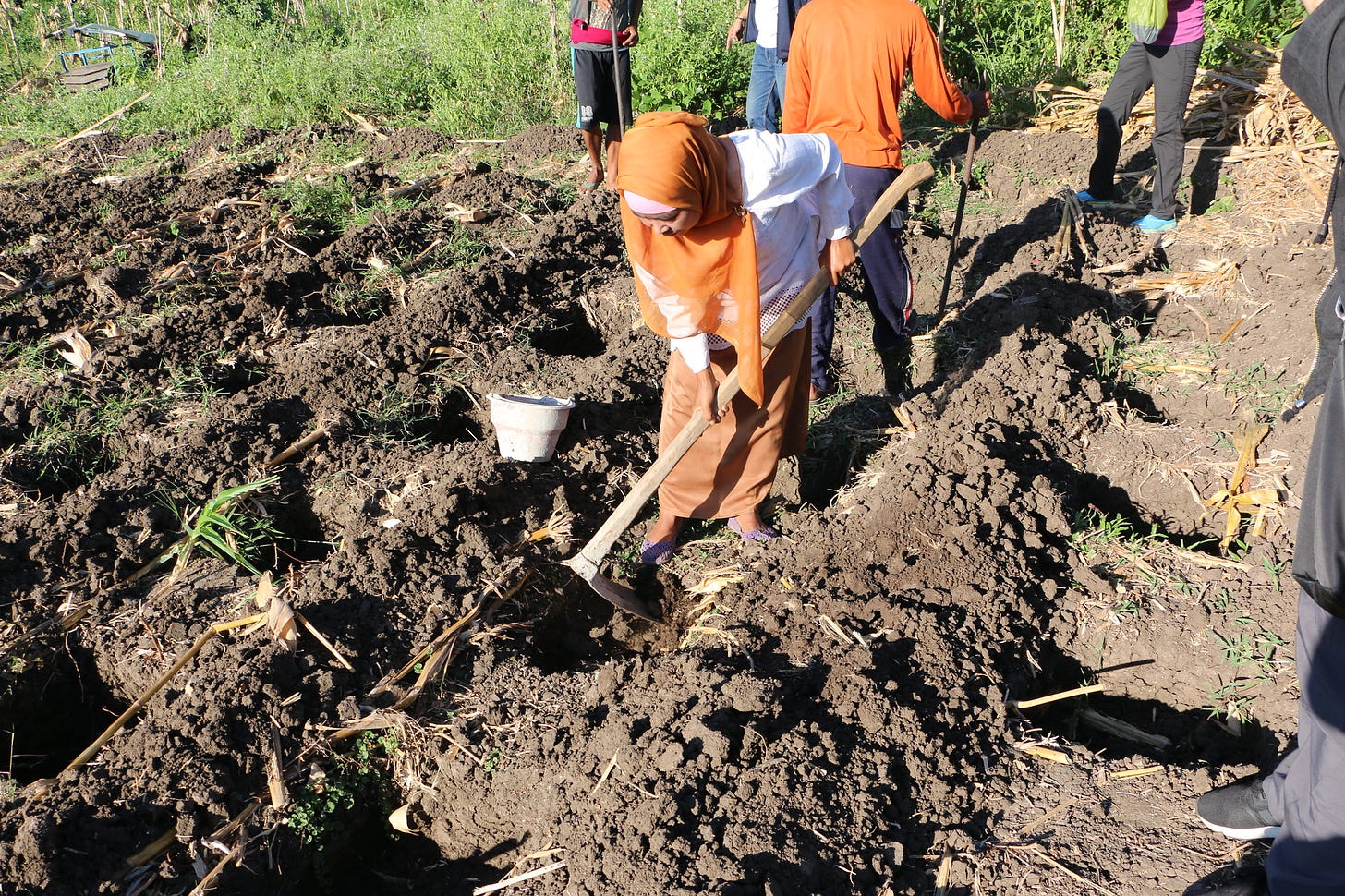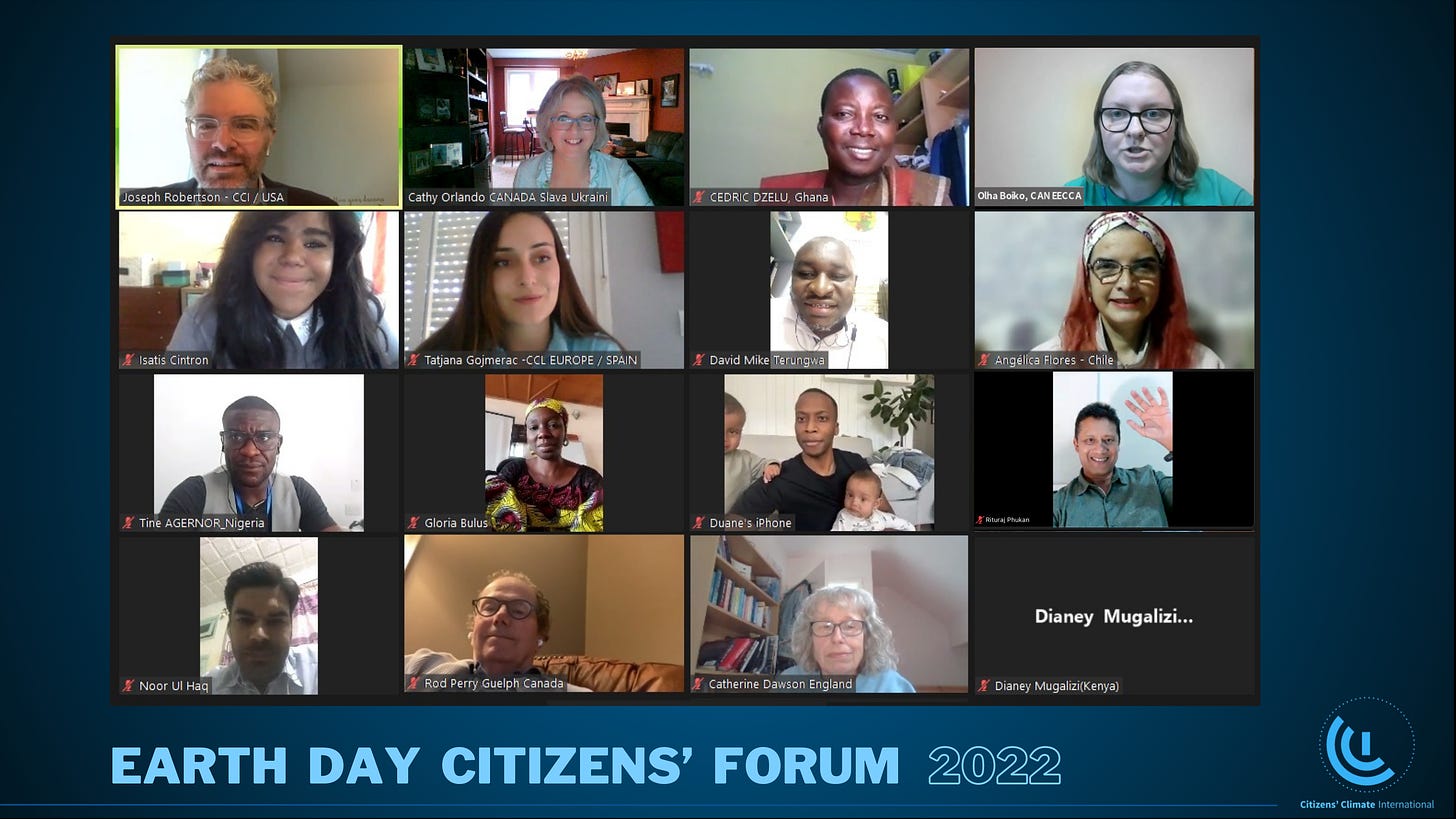Earth Day 2022: We need climate transformation, fast; here’s how
This moment is different.
What we do now will determine how billions of people live, and how safe they are, decades from now. We are living through a crucial moment on which human history and the health of planetary systems will hinge. That is the biggest takeaway from the three IPCC global climate science reports published since last August.

Working Group I (on the science) found that only with the most ambitious, immediate, sustained, and universal climate action, will we limit global heating to 1.5ºC or lower.
Working Group II (on Impacts, Adaptation, and Vulnerability) found that the window for successful climate resilient development is rapidly closing.
Working Group III has now reported that we are not eliminating global heating pollution rapidly enough to avoid a state of pervasive, persistent climate emergency—though we do have the technology, the policy instruments, and the financial resources to do so.
We are facing multiple converging crises right now:
Climate disruption has degraded ecosystems and productive agricultural land, reducing grain stocks and stressing food supplies.
Impacts and vulnerability are now pervasive and compounding, adding more and more devastating costs year after year.
Biodiversity is being depleted more quickly and more extensively than at any time since our species came into existence.
Pollution is getting worse, with projections finding there will be more plastic than fish in the ocean by 2050.
Russia’s invasion of Ukraine has disrupted global food supplies, adding to an already dangerous rise in prices for basic needs.
Meanwhile, we are living through a pandemic that makes it harder to address each of these challenges. COVID-19 has taken at least 6,213,331 lives, at this writing. The pandemic and its wider effects are thought to have taken at least 18 million lives.
Most of these deaths are preventable. That we have not prevented this devastation is a lesson, and a warning. The World Health Organization has found that 24.3% of all deaths globally (13.7 million deaths per year) are due to environmental causes. All of those deaths are preventable.
We have not, as of Earth Day 2022, managed to create the socio-political infrastructure to stop virus spillovers, prevent pollution, protect nature, or adequately honor each other’s rights and humanity. So, we face a moment of world-shaping choice, while circumstances are only making it harder for us to make the best decisions and move quickly toward the best-case future outcomes.
Informed civics is critical.
In our Earth Day Citizens’ Forum, we heard from Olha Boiko, coordinator of the Climate Action Network for Eastern Europe, the Caucasus, and Central Asia (CAN-EECCA). She brought a message of hard-won wisdom, from the perspective of a society facing a direct and overwhelming threat to human safety, rights, and sovereignty. Her message: Civil society is strength.
The degree to which a society is practiced at organizing locally, working together to solve problems large and small, and collaborating across different perspectives, determines how well that society can respond to adversity. Adaptive capacity isn’t an authoritarian strength; it is a strength of open and cooperative societies.
The United Nations Human Rights Council has formally recognized the right to a clean, healthy, and sustainable environment. If that right is to be realized, we must also recognize that the Universal Declaration of Human Rights views every human being as “endowed with reason and conscience”, “entitled without any discrimination to equal protection”, enjoying “the right to education”, “to seek, receive and impart information and ideas”, and “to take part in [their] government”.
Authoritarian systems allow power-holders to control and conceal information. This makes it harder for the society to use knowledge to advance solutions, and it deprives people of basic and universally recognized rights. There is a right to know, and to act on knowledge, for the defense of human health and the improvement of the human condition.
To make sure we do not miss this critical moment of global consequence, we need stakeholders to get engaged, to learn from each other, to talk about policy, and to design the best possible sustainable pathway for their community, region, and nation. We need to expand the civic space, to make room for people of all kinds to exercise informed, locally rooted, personal political sovereignty.
Engaging to make change happen
This Earth Day, we are launching a new edition of the Engage4Climate Toolkit.
The Toolkit provides people in any circumstance straightforward, flexible guidance on organizing meetings of stakeholders, including across different perspectives and levels of experience, to discuss and address climate challenges. It provides meeting templates, an outline of 20-year future visioning and “back-casting” exercises, and ways to report findings to decision-makers.
One big question facing leaders and long-time advocates is: How do we prevent a repeat of the old cycle of reform and backsliding?
Energy prices are high now, but they will collapse, and that will invite a flood of new investment into lower-cost, high-margin mainstream energy systems.
Meanwhile, great damage can be done to human development prospects, if we make the wrong choices about future energy.
So, we need to mobilize alternative sources of clean energy as quickly as possible, for as many people as possible.
And, we need smart food security cooperation to save lives and prevent rogue regimes from projecting harm and chaos across the world.

Article 6, Paragraph 8 (Article 6.8) of the Paris Agreement calls for “non-market approaches” (NMA) to cooperative decarbonization. In a brief to the UNFCCC process, we outline 12 distinct areas of financial, policy, trade, and fiscal measures that could turn this call into real-world climate action. We have also identified ways NMAs can be used to foster future food security.
Around the world, CCI volunteers are working to build political will for a livable climate future. To cite just a few examples:
This week, volunteers in Europe are lobbying European Union officials in Brussels.
At the beginning of May, volunteers in Canada will lobby the Parliament. They are also pushing to expand emissions reduction efforts to include volatile anaesthetics.
Volunteers in Nigeria organized a very productive media roundtable on the recent IPCC report.
In Gambia and Bangladesh, plans are in the works for meetings with public officials in the coming weeks.
In Colombia, volunteers are working to address the displacement of frontline communities, the need for ecosystems restoration, and are calling for ratification of the Escazú Agreement and protection of environmental and human rights advocates.
Last year in Australia, volunteers organized 100 Days of Action leading up to COP26, focusing on Net Zero by 2050 as a unifying goal.
Building momentum
In June, we will hold the first Global Week of Action, in which citizen volunteer policy advocates in more than 70 countries will:
Schedule direct policy discussions with public officials;
Spread their message in local media;
Organize, if they choose, educational meetings in their communities;
Connect with trusted leaders, to build political will locally;
Engage in focused trainings to develop the critical skills of volunteer policy advocates and organizers.
Citizens’ Climate volunteers are also building a global community of support for an open letter to the G7. The letter will build on the ongoing work within civil society networks to advance decarbonization, carbon pricing, and inclusive sustainable finance, to safeguard the civic space, and to advance equity and empowerment through the Women7 Advisors process.
We invite people of all backgrounds and contexts to get involved and engage in concrete and specific ways to change what is possible politically and in terms of inclusive sustainable transformation. We cannot afford to miss this moment.




